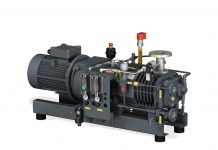Competence has always been essential to safe operation in the process industries and the benefits of investing in a competent workforce, such as increased productivity and improved resource efficiency, are generally well understood. Many employers in the industry have incorporated competence into their strategy and are committed to it in the long term.
We are currently facing new challenges to develop and maintain high levels of competence from external sources, such as, the demographic ‘grey wave’ that is beginning to bite across the sector. Employers are having to recruit new employees to replace those retiring and need systems to retain their current high levels of competence.
The Competent Authority’s introduction of a Competency Management System inspection regime in April 2012 has added another dimension for sites falling under the COMAH regulations. In fact, the HSE’s Inspection of Competence Management Systems at COMAH Establishments Guideline is an excellent model for competence development within any company and enables employers to embrace both performance improvement and compliance in an effective and robust way. Yet, worryingly, a recent straw poll across a group of SHE Managers from the chemicals sector suggested less than 20% had actually reviewed the guidance and only 10% felt they would pass muster.
Developing and maintaining competent employees requires an understanding as to what competence is within each job role, and commitment of resource and investment in training and systems that allows you to monitor and track employee competence.
The Academy’s effective competence assurance system has been mapped against the HSE’s Competency Guidelines and Human Factors Guidelines. Used in conjunction with the Gold Standard Framework and the Cogent Competency Management System Guidelines, it enables employers to ensure their employees have the necessary level of competence to drive up business performance in a safe and compliant manner. Larger organisations may have these processes in place, but is it always useful to benchmark internal systems against an external standard.
The industry must accept that competence is vital, it requires a long term approach and done properly, it is an investment not a burden. Each business may approach it differently, but it is worth knowing there is help and guidance out there readily available to all.













